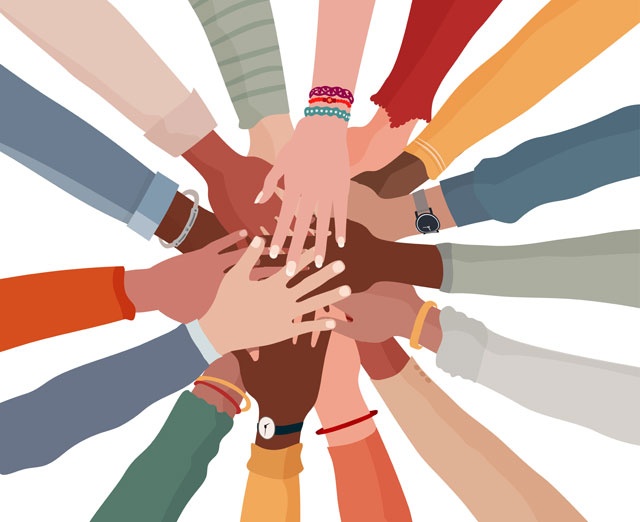There is virtually no other occupation in the world that will help you to develop as a person while you work with others to do the same. Those on the road of life coaching are looking to better themselves: in life, at work, and in creating a better balance between the two.
Little known before the 1980s, life coaching is one of the fastest developing careers available to you. While there are a great many coaching schools available, not all of them actually prepare you for the work of being a life coach.
Can Anyone Be a Life Coach?
Not really. We will discuss the qualifications for being a life coach; and by the time you complete this class, you will know if you are a good candidate for this career. In addition, you will learn a great deal about personal development.
Most people make their first foray into personal development when they are in their mid-30s. Prior to that time, they are very much involved with their lives and themselves. Quite frankly, they thought they were pretty darn good people. They were smart: Others seemed to like them; and, in the case of those who did not, people at a younger age usually decided that they simply did not need them.
Then they entered an occupation that required them to get to know a lot more about people than they did. They were introduced to the term "personal development," and that is when most people finally realize that they are not perfect and that they do, indeed, need some work.
Once people start listening to tapes, going to seminars and presentations, and reading books, they realize that there is a whole lot about themselves and the world that they do not know.
They are shocked!
Here is a story of a young, college-aged woman named Jan, who wanted to join a network marketing company and was told she needed some coaching.
Jan approached a friend, Karen, who worked as a life coach. Karen agreed to help her. As a beginning life coach, Karen assumed that it would be pretty easy to give Jan a few pointers.
Karen learned quickly in that very first session that, unless someone wants to change, they will not change!
That is the first thing you have to understand, and you must believe it: No one can motivate another. Motivation comes from within.
When asked about her goal in personal development, Jan said she thought she was actually pretty well set; she was only meeting with Karen because it was a requirement for her.
She did not think that she needed to change.
.
Finally, Karen had to tell Jan that there was nothing more she could do for her. It was true. Until Jan realized she needed to make some changes, nothing anyone told her would make any difference.
From time to time, you will have a client who seeks the help you can provide, but that is as far as they are willing to go. If they are not willing to do the work required to change, your time with them will not be fruitful.
For those of you who wish to be a life coach, you have taken the first step on a most enlightening and powerful journey. You are to be congratulated for that. This class will give you the benefit of personal life coaching experience, as well as some of the experiences of other coaches.
Does that surprise you? It should not. Most life coaches recognize that there are areas that still need to be addressed in their own lives. In fact, some of the very best life coaches have coaches themselves. If you do not have a life coach, you may wish to look for one who suits you. You will learn a great deal from this class, but you also will learn a great deal about yourself while you prepare yourself for this exciting career.
The good news is that you do not have to know everything before you become a coach. Every life coach interviewed for this class has said that he or she continues to learn every day. Most even believe that they will never know everything there is to know about coaching.
What Coaching Is versus What Coaching Is Not
Coaching is often compared to psychotherapy or consulting. These assumptions are false. Let us explore the three occupations:
|
Before you begin to coach someone, you really must connect with yourself. In order to bridge the gap between a person and his or her goal, you must first do it with yourself. It is difficult, if not impossible, to ask someone to do work on herself or himself that you have not yet done on yourself.
The journey to a new future begins with you. The relationship you have with yourself is the most crucial relationship there is, and you must understand it before you coach someone else.
Everything is a direct result of your relationship with yourself. When you know who you are, you send energy proclaiming yourself to the world. Your thoughts, perceptions, and beliefs of yourself become evident to those around you.
You will discover that your emotions, judgments, self worth, and your internal conversations will tell you more about yourself than anyone in the world can tell you. By getting in touch with yourself, you will learn to deal with all your feelings: the good, the bad, and the ugly.
Life coaching goes far beyond learning about making choices. It encompasses every interaction you have, from your productivity, use of time, energy, finances, friends, and associates. You will learn to distinguish between your private self and your public self. You will understand with great clarity that you have choices; you can either speak up or remain silent.
One of the most important things you will learn is that ignoring problems does not make them go away. Ignoring a problem will only widen the separation between the problem and a potential solution.
Integrity: As a coach, you must have full integrity. The word integrity comes from the Latin word meaning "undivided." An individual with integrity upholds principles and standards at all times, when things are going well and when they are not. In order to have this kind of integrity, you must be aware of your behavior at all times. Most people are not aware, and your job as a coach will be to enlighten them.
Most people tend to react only to the expectations of others. Their entire life is driven by the opinions of other people. We wait with bated breath to see whether we are met with approval or rejection. Most of us are so narrowly focused that we cannot see all possibilities that lie before us.
Embarking on the journey of personal development will open many doors, most of which have remained shut for you. This is a journey that is ongoing. You will learn to always be aware, and to always be growing.
Where Is Your Passion?
In order to discover what you should be doing with your life, you first need to identify your passion. You will first ask these questions of yourself, and you will find that you will ask every one of your clients similar questions. This is the first step on our journey to self-discovery:
|
In order to lead a fulfilling life, you have to identify how you feel about your life and all aspects of it. Most of the time, when we discuss passion, we are talking about what you want to do with your life. Interestingly enough, passion can be found in every corner of our lives.
We are passionate about certain people in our lives. We either really like spending time with them or we do not.
We can be passionate about certain occupations or activities.
We can be passionate about making a difference in the world. Whatever it is, working to discover your passion will help you assist your client in identifying what his or her passion is.
Without mastering yourself, you cannot possibly hope to help another person take command of his or her life.
What Are Your Talents?
Because you are interested in becoming a life coach, answer the following questions:
|
Being a life coach means you have to live and be your message. You cannot just look like a coach. You have to live it!
What Do You Want To Be When You Grow Up?
Discovering what you want to be when you grow up is a really great endeavor. Most people are stuck in a life that they are not enjoying. Here is a secret: Life is the real thing, and you get one chance at it. Do not live your life as if you can ask for a do-over.
Meaningful life: This brings us to the discussion of what a meaningful life means. When a person lives a meaningful life, she or he is living with a sense of purpose. The person has evaluated personal abilities, identified strengths and talents, and put them to full use. Some people are especially perseverant, others are leaders, and still others express themselves through the arts: painting, drawing, dancing, and singing. What sets these people apart is that they are using these talents to improve the world in some way.
You should be asking yourself the question, "What should I do with my life?" Most of you will answer that your life is too busy or too frenetic to be able to find or define a purpose. Your clients most certainly will answer in this manner.
The answer to this problem is to take responsibility for your life. You must use your passion, your strengths, and your talents to their fullest capacity to find happiness in a meaningful and purposeful life. As a coach, you will be helping your clients to work toward that goal.
































